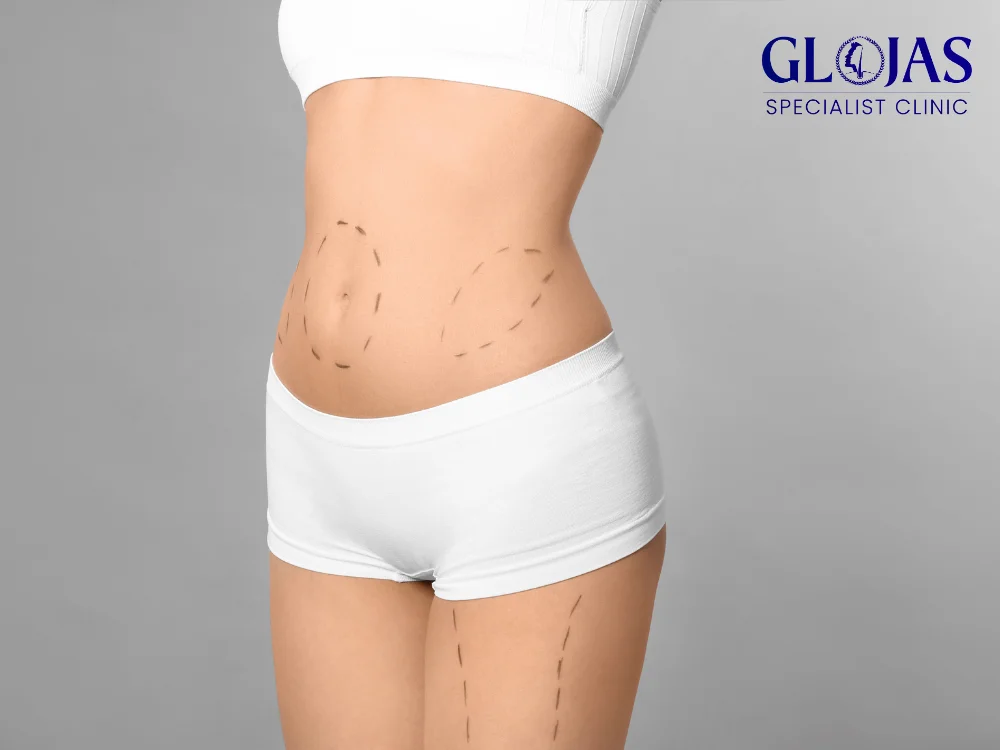Truth About Tummy Tuck Cost: A Comprehensive Guide to Pricing

When considering a tummy tuck, one of the most pressing questions is, “How much does a tummy tuck cost?” This guide provides a thorough breakdown of the factors that influence the cost of this popular cosmetic procedure. By understanding these elements, you can make an informed decision and ensure you’re getting the best value for your investment. Let’s dive into what you need to know about tummy tuck costs. The video highlights the benefits of tummy tuck surgery for those struggling with excess skin and stubborn fat around the midsection. It explains how the procedure helps tighten abdominal muscles and remove excess skin, leading to a more contoured silhouette. In addition to physical improvements, the surgery boosts confidence and helps individuals feel more comfortable in their own bodies. The video emphasizes that a tummy tuck can help achieve the toned stomach many dream of, enhancing both appearance and self-esteem. What is a Tummy Tuck? A tummy tuck, also known as an abdominoplasty, is a cosmetic surgery that removes excess skin and fat from the abdomen. It also tightens the muscles in the abdominal wall, creating a smoother and firmer appearance. People often opt for this surgery after significant weight loss, pregnancy, or aging, which can lead to loose skin and weakened muscles around the abdomen. While the aesthetic benefits of a tummy tuck are clear, understanding the financial commitment involved is essential. Many factors contribute to the overall tummy tuck cost, and these can vary widely depending on where you are located, the surgeon you choose, and other considerations. Breaking Down the Tummy Tuck Cost The cost of a tummy tuck can range from $3,000 to $12,000 or more, depending on several key factors. Below is a detailed breakdown of the main elements that affect tummy tuck cost. 1. Geographic Location Where you have the surgery done can significantly impact the cost. Larger cities or areas with a high cost of living tend to have higher surgery costs. For example, tummy tuck procedures in places like New York City or Los Angeles will often be more expensive compared to smaller towns or rural areas. 2. Surgeon’s Experience and Reputation Choosing a highly experienced and board-certified plastic surgeon will likely increase the tummy tuck cost, but it can also provide you with better results. Surgeons with a strong reputation for delivering excellent outcomes may charge more due to their expertise and the demand for their services. 3. Type of Tummy Tuck Procedure There are different types of tummy tucks, and each type comes with its own price point: Full Tummy Tuck: This procedure involves removing a larger amount of excess skin and fat, as well as tightening the abdominal muscles. It’s more extensive and, as a result, more costly than a mini tummy tuck. Mini Tummy Tuck: A mini tummy tuck addresses only the lower abdomen and typically involves a smaller incision. Because this procedure is less extensive, it is usually less expensive. Extended Tummy Tuck: This surgery includes the abdomen, hips, and sometimes the thighs, and it is typically the most expensive option due to its complexity. 4. Hospital or Surgical Facility Fees The cost of the surgical facility is another component to consider. Some surgeons perform tummy tucks in accredited private clinics, while others may use a hospital. The facility’s reputation, location, and amenities can impact the overall cost. Hospital fees tend to be higher, but they may also provide more comprehensive care if complications arise. 5. Anesthesia Fees Anesthesia is required for all tummy tuck procedures, and the type of anesthesia used can affect the cost. General anesthesia, which is the most common for a tummy tuck, is typically more expensive than local anesthesia with sedation. 6. Pre- and Post-Operative Care Before and after your tummy tuck, you’ll likely need consultations, tests, and follow-up appointments. Pre-operative care might include blood work, physical exams, or medical clearances, all of which can add to the overall tummy tuck cost. Post-operative care, such as pain medications, compression garments, and follow-up visits, should also be considered. Are Tummy Tucks Covered by Insurance? One common question is whether insurance will cover the tummy tuck cost. In most cases, tummy tucks are considered elective cosmetic procedures, meaning that insurance does not cover them. However, if the procedure is deemed medically necessary, such as in cases of hernia repair or excess skin causing severe medical issues, insurance may cover a portion of the cost. It’s essential to consult with your insurance provider to see if you qualify for any coverage or reimbursement for part of the procedure. Financing Options for Tummy Tuck Surgery Because tummy tucks can be costly, many plastic surgery practices offer financing options. Payment plans, medical credit cards, and loans can help make the procedure more affordable by allowing you to spread out the payments over time. Here are a few common financing options for tummy tuck procedures: Medical Credit Cards (such as CareCredit): These cards are specifically designed for health-related expenses and often offer promotional periods with low or no interest. Payment Plans: Some plastic surgeons allow patients to set up a payment plan, either directly through their office or via a third-party financing company. Personal Loans: A personal loan from a bank or online lender can also be a viable option for funding your surgery. How to Choose the Right Surgeon Based on Tummy Tuck Cost Choosing the right surgeon is one of the most critical decisions in your tummy tuck journey. While cost is an important factor, it should not be the sole basis for your decision. It’s essential to find a surgeon who is board-certified, has a wealth of experience, and is someone you trust. Here are a few tips for choosing a surgeon based on tummy tuck cost: Look for Board Certification: Ensure your surgeon is certified by a reputable board, such as the American Board of Plastic Surgery (ABPS). Ask for Before and After Photos: Viewing a surgeon’s past work can give you a good






